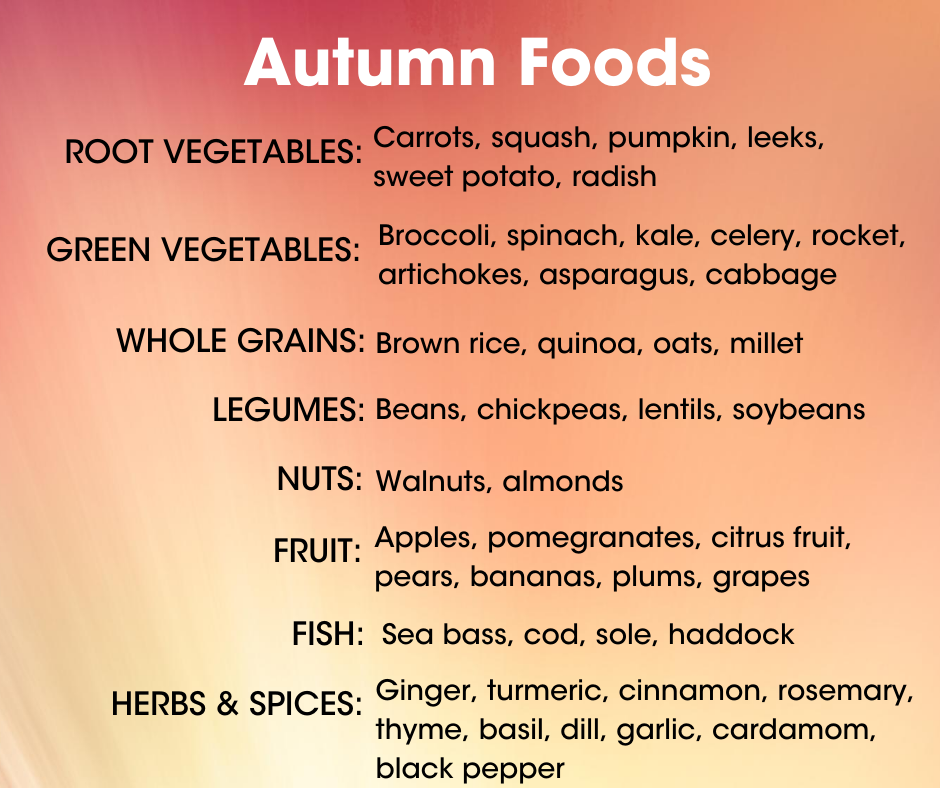As the weather starts to cool off in Autumn, it’s important to change our habits and behaviors to suit the new season. A lot of seasonal living is instinctive. For example, you probably naturally find yourself waking up a little later in the morning, drinking more hot beverages, and wearing thicker knits or more layers without really thinking about it. But some seasonal living requires a bit more thought.
Traditional Chinese Medicine (TCM) takes a holistic approach to healthcare, including seasonal living in behavior and diet. Why change what you eat depending on the season? Our bodies need different things at different times. As our environment changes it impacts the types of nutrition our body needs to appropriately balance. You can think of eating a salad in winter to wearing a bathing suit in the snow!
Eating for Autumn
Autumn is a transitional time between the more dynamic, energetic atmosphere of summer (yang energy) to the more relaxed, cozy feeling of winter (yin energy). This movement from one end of the spectrum to the other is a journey that can bring up physical as well as emotional stress, so Traditional Chinese Medicine (along with other ancient knowledge traditions like Ayurveda) recommend carefully selecting the foods we take into our bodies for optimal support and nourishment.
Because autumn brings with it the wind element, cooling things down, TCM recommends switching from more cooling foods like salads and raw foods to meals with longer cooking times and heartier ingredients. The organs associated with autumn are the lungs and the large intestine, so TCM emphasizes foods that support those organs during this season; and because autumn is associated with wind and dryness, TCM recommends eating moisturizing foods like stews and soups.
Gut Health
There are other benefits to seasonal eating as well. Until quite recently with the advent of industrialized farming, humans ate seasonally and locally by default. Our bodies are still made to observe those natural rhythms, including our gut bacteria! Instead of eating the same foods and the same nutrient profiles all year long, seasonal eating helps you practice a diverse diet and maintain a healthy gut biome.
Environment
From an environmental perspective, storing and transporting out-of-season foods requires a lot of energy and depletes the nutritional content of the food. We don’t know about you, but if we’re going to eat our greens they should at least be nutritious!
Here are some other foods TCM recommends during the autumn season:


